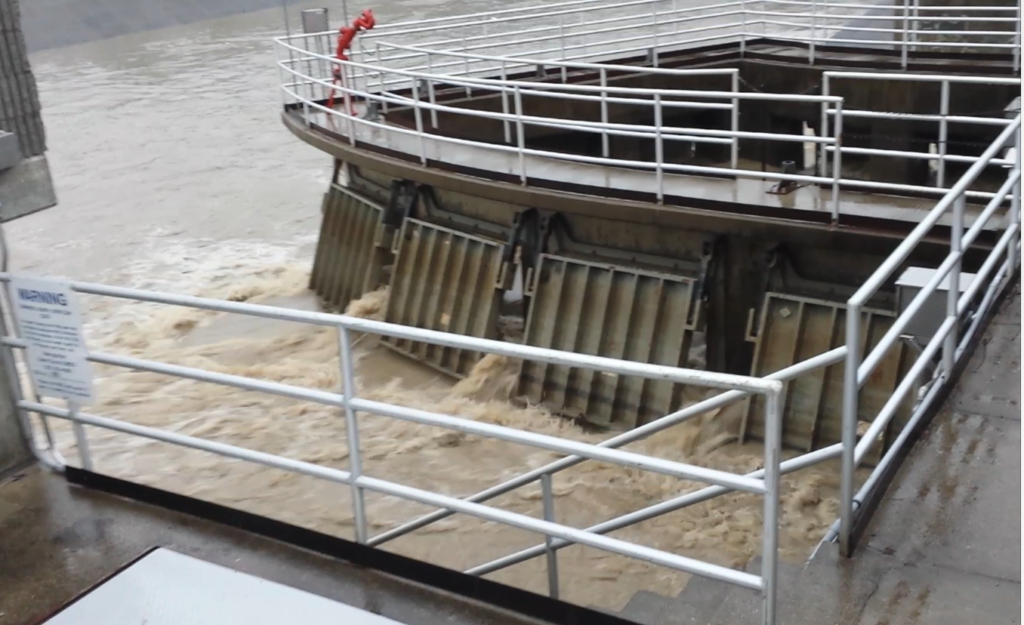Services / Water Quality / Sanitary-Sewer Overflows
Sanitary Sewer Overflows
When it rains, ground water rises, or when the sanitary sewer systems become overloaded, sanitary sewer overflows (SSOs) may occur, sending untreated sewage into Hamilton County waterways. SSO water poses a health threat to the environment and to residents who may come in contact with this water.
Hamilton County Public Health would like residents to be aware of the health effects associated with contact with water from SSOs.

Health Risks
There are several ways in which wastewater associated with SSOs can harm your health:
Direct contact with sewage
- playing, working or walking in a yard with a failed household sewage system
- swimming in water (pond, lake, etc.) contaminated with sewage
Fecal-oral route
- drinking water contaminated with sewage
- eating food prepared or washed in contaminated water or that has been improperly handled by an infected person
- not washing hands after contact with sewage (from water contaminated with sewage, or a surface such as a ball, pet toy, or tool that has been contaminated with sewage
Contact with human, animal or insect carriers
When SSOs occur, you should avoid all contact with overflow waters. These overflows are comprised mainly of wastewater carrying pathogens, bacteria, harmful chemicals, and possibly heavy metals known to cause a variety of environmental and health problems.
The Metropolitan Sewer District (MSD) has placed warning signs like the one shown above at all SSO discharge locations. If you see one of these signs, it means the water may pose a health threat. You should avoid all contact with that water.
MSD documents and categorizes SSOs in Hamilton County. SSOs are classified according to how frequently they occur.
